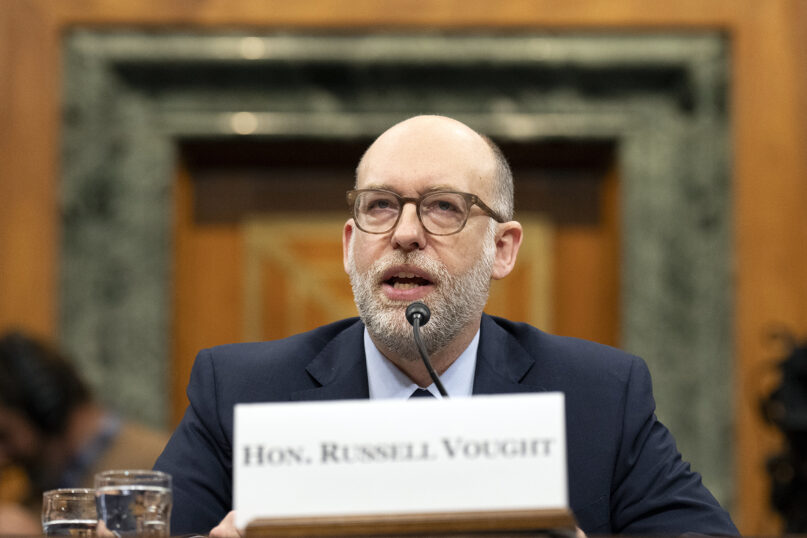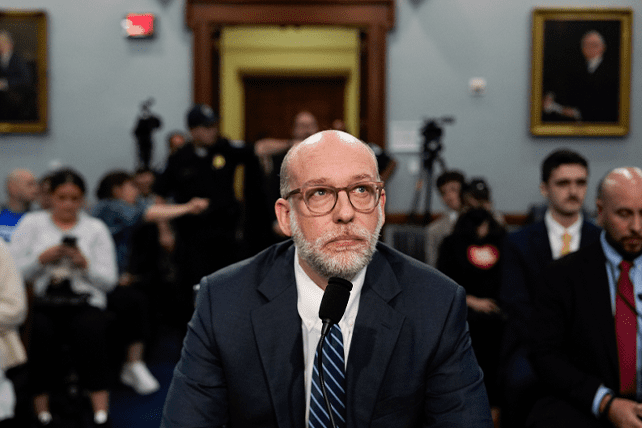But even as Vought has found new allies, his leanings have alienated some conservatives — including fellow evangelicals. When Wheaton congratulated him on his confirmation as OMB director on social media, 1,800 of the school’s alumni and others signed a petition condemning the endorsement, calling Vought’s projects “antithetical to Christian charity.”
Looking to quell the controversy, Wheaton withdrew its congratulations, only to see another letter written by Eric Teetsel — a Wheaton grad who took over the Center for Renewing America after Vought left to join the administration — signed by 1,400 alumni appear as a counter-protest. The letter called for an end to the school’s “current DEI regime.”
Even some of his inspirations are challenging his ideas. In his 2021 speech to the Forge Leadership Network, Vought said his use of the term “soulcraft” was taken from conservative columnist George Will’s 1983 book “Statecraft as Soulcraft.” Will told RNS that while he agrees with the OMB director on several points, Vought misunderstands the concept. Soulcraft, Will said, is what virtually every government does by passing laws that “encourage or stigmatize or forbid certain behaviors,” whereas Vought seems to be calling on the government to engage in “conscious, explicit soulcraft.”
“Vought has a more ambitious agenda of soulcraft than I think is healthy or proper for society,” Will said.
Of Vought’s vision for Christian nationalism, Will said, “If his aspiration is a Christian nation, I’d say, ‘Good luck to you … just keep the government out of it.”

Russell Vought, President Donald Trump’s choice for director of the Office of Management and Budget, appears before the Senate Budget Committee during a hearing examining his nomination, on Capitol Hill in Washington, Jan. 22, 2025. (AP Photo/Jacquelyn Martin)
This article originally appeared here.

